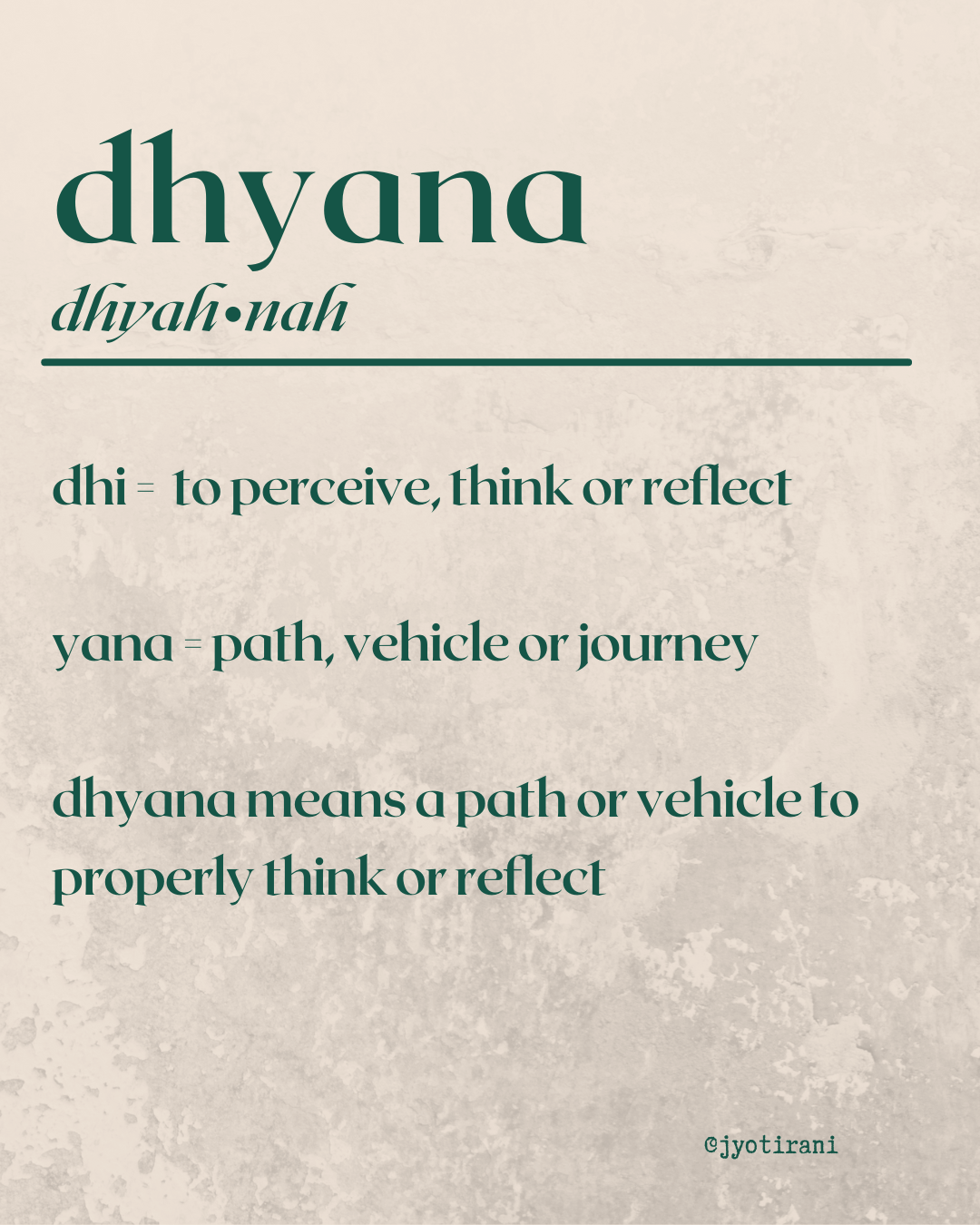What is Dhyana?
Dhyana (dhyah-nah) is the seventh limb of Patanjali’s eight limbs of yoga. Dhyana can be derived from the root word dhyai, which means to imagine, meditate or contemplate. Whilst meditation is the common translation of dhyana, the word mediation has many meanings that evoke a range of connotations. So simply translating dhyana to meditation doesn’t capture the depth of the word. Dhyana can also be derived from two Sanskrit words. Dhi, meaning to perceive, think or reflect. Yana, meaning path, vehicle or journey. Together, dhyana means a path or vehicle to properly think or reflect.
The seventh limb of yoga focuses on our inner world. A Guru or teacher can guide you up to a point with dhyana but it’s ultimately a practice that you have to do alone. Dhyana builds upon the previous limbs which need to be practised regularly to achieve a state of dhyana. We have yama for social principles. Niyama for personal principles. Asana for a steady and comfortable seat for meditation. Pranayama for extending or expanding the life force within us. Pratyahara for drawing our awareness inwards. Dharana for one-pointedness concentration. And only then do we begin to practise dhyana.
Upon first glance you may think dhyana is similar to dharana but there are distinct differences. Dharana is one-pointedness concentration that requires effort whereas dhyana is having full awareness without effort. Whilst practising dharana there will be interruptions whereas dhyana is an unbroken flow - the lines between you and what you’re meditating on become blurred and merge together. The subject and object become one. For example, someone who had achieved dharana would say that they were able to fully focus on a light during meditation. Whereas someone who had achieved dhyana would say that they became the light during meditation.
That’s the distinction - moving from a state of doing to being. The subject and object become one. The subject is fully immersed in meditation and can no longer separate the self from it. When in a state of dhyana you observe without attachment or judgement. You forget that you’re meditating.
I would love to hear your thoughts. Have you ever had a glimpse into this state of being? You can email me at hello@jyotirani.com
With love & gratitude
Jyoti x
(pronounced Jyo-thee)
Article written for Ekotex Yoga ~ visit www.ekotexyoga.com to see more and save 10% with my code 'JYOTIRANI'

